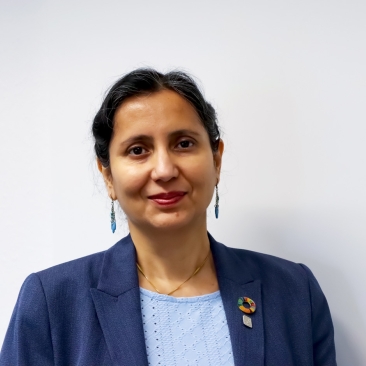
United for Forests. Powering Global Change
For a world in crisis, forests offer hope. In the face of the ongoing climate, biodiversity and pollution crises, and of slowed and reversed global development, forests offer a critical line of defense and multiple solutions. For the rapidly depleting global biodiversity, for the one billion people, including 90 percent of the world’s extreme poor, that depend on forests for at least a part of their livelihoods, for the world’s 8 billion people that are facing the catastrophic impacts of climate change, the forests are preservers, providers and protectors.
Yet forests worldwide are under threat from deforestation and degradation. While drivers of deforestation have changed over the years, economic pressure from alternative land use, the imperative to extract increasing value from forests, and environmental factors like wildfires, changing weather patterns, and pestilence are rapidly transforming forest cover worldwide.
The biggest possible coalition of actors needs to come together to protect and promote the health and resilience of the world’s forests and leverage them in defense of life on earth.
That’s why the theme of the upcoming FSC General Assembly, United for Forests. Powering Global Change, carries profound relevance and purpose.
This theme reflects our belief that meaningful change happens when people come together. United for Forests is a call to solidarity and stewardship: to work across boundaries, sectors, and interests to protect and restore the world’s forests. Powering Global Change speaks to our collective ability to drive systemic transformation, when the right people, the right policies, and the right incentives align. Together, we can shift systems, driving forest stewardship that upholds human rights, protects biodiversity, and contributes meaningfully to the Sustainable Development Goals.
It reflects FSC’s role not just as a standards-setter, but as a platform for dialogue, bringing together its members, certificate holders, and partners across governments, Indigenous communities, academia, businesses, NGOs, and the greater civil society to co-create solutions that no single group can achieve alone. In a world often divided by competing interests, our multi-stakeholder model proves that collaboration is not only possible, it is also powerful.
As our members gather in Panama, a region rich in forest heritage and cultural diversity, we have an opportunity to turn our shared values into shared action. We will come together not as isolated stakeholders, but as an interconnected community with a common stake in the future of forests. Through inclusive dialogue, trust-building, and decision-making, we will chart a path toward lasting impact.
Together, we can transform how the world values forests, and turn that knowledge into action that reaches across sectors, societies and systems.

